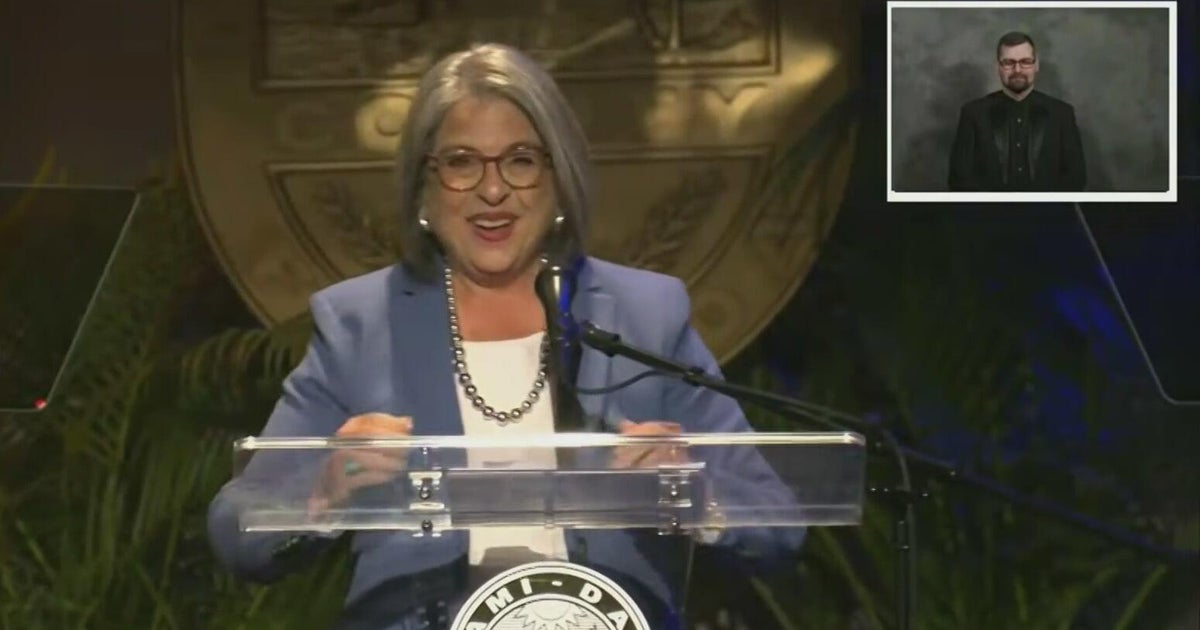Florida and plaintiffs’ attorneys are battling about whether two new U.S. Supreme Court decisions should clear the way for the state to block Medicaid coverage for transgender people seeking hormone therapy and puberty blockers.
Lawyers for both sides filed briefs Friday at the 11th U.S. Circuit Court of Appeals, with the state contending that the Supreme Court decisions should lead to overturning a district judge’s ruling that said Florida violated federal laws by prohibiting Medicaid coverage for the treatments.
One of the Supreme Court decisions, in a case known as United States v. Skrmetti, upheld a Tennessee ban on doctors providing hormone therapy and puberty blockers to minors to treat gender dysphoria. The other, in a case known as Medina v. Planned Parenthood South Atlantic, restricted the ability of beneficiaries to file Medicaid lawsuits against states.
Florida and plaintiffs debate discrimination
In their brief Friday, Florida’s lawyers argued that the Skrmetti decision “makes clear” that Florida’s ban on Medicaid coverage for the treatments “easily passes muster.” The brief disputed that the ban violates equal-protection rights because it involves a medical diagnosis.
“There’s no medical consensus on gender-dysphoria procedures,” the state’s brief said. “Those procedures can cause permanent, negative consequences for patients. The state gets wide berth to take the steps it deems necessary to protect its citizens.”
But attorneys for plaintiffs who challenged the ban argued in a brief that the Skrmetti decision was “fairly limited in its scope and breadth” and that Florida’s Medicaid coverage exclusions “discriminate based on transgender status and therefore sex in violation of the Fourteenth Amendment,” which includes equal protection.
“It is not – and cannot be – the law that transgender people are strangers to our Constitution’s protections against invidious governmental discrimination,” the plaintiffs’ brief said. “Skrmetti does not bless nor give license to such discrimination. To the contrary, the Fourteenth Amendment protects persons from governmental enactments, like the exclusions, that facially discriminate based on transgender status and/or are ‘designed to effect an invidious discrimination against transgender individuals.'”
The lawsuit was filed in 2022 on behalf of two transgender adults and the parents of two transgender minors after the Florida Agency for Health Care Administration adopted a rule that barred the coverage. The lawsuit was later updated to include a 2023 state law that similarly prevented Medicaid reimbursement for the treatments.
Unlike the law at issue in the Skrmetti case, which dealt only with treatment of minors, the Florida Medicaid restrictions applied to minors and adults.
U.S. District Judge Robert Hinkle ruled that the Florida restrictions violated equal-protection rights, a federal Medicaid law and a federal Affordable Care Act prohibition on sex discrimination. The state appealed to the Atlanta-based appeals court, where the case has remained pending.
Broader context and legal nuances
After the Supreme Court issued the Skrmetti and Medina decisions last month, the 11th Circuit directed attorneys to file briefs about what effects, if any, the decisions could have on the Florida case.
Florida approved the Medicaid limits as Gov. Ron DeSantis and many other Republican leaders across the country made a priority in recent years of trying to restrict treatments for transgender people with gender dysphoria. The Mayo Clinic website defines gender dysphoria as “a feeling of distress that can happen when a person’s gender identity differs from the sex assigned at birth.”
A key dispute in the briefs filed Friday centered on whether the Florida restrictions were discriminatory or were focused on a medical condition. The plaintiffs’ attorneys contended that the state law refers to “sex reassignment prescriptions or procedures,” rather than a medical condition, and is unconstitutionally discriminatory.
“Critically, Skrmetti’s analysis hinges on the (Supreme) Court’s finding that Tennessee’s law classified based on age and medical condition,” the plaintiffs’ brief said. “That is not the case here, where the exclusions irrationally target transgender people of all ages; it prohibits coverage of gender-affirming medical care for Medicaid beneficiaries regardless of age.”
In their brief, the state’s lawyers acknowledged that the case involves adults and minors but said that “doesn’t matter.”
“These experimental procedures raise concerns for minors and adults alike, and the state gets to protect its minor and adult citizens from such procedures,” the state’s brief said.
The other issue in the briefs centered on the Supreme Court’s decision in the Medina case restricting Medicaid beneficiaries from suing states for allegedly violating rights.
Florida’s brief Friday, partially quoting from the Medina decision, said that when a “state purportedly ‘violates’ a Medicaid ‘condition,’ the (Supreme) Court said, the ‘typical remedy is not a private enforcement suit’ … ‘but rather action by the federal government to terminate funds to the state.'”
But the plaintiffs’ attorneys said Florida did not make such arguments earlier in the appeal and can’t do so now.
“Defendants made the strategic decision not to raise enforceability of the Medicaid Act provisions in this case on appeal,” the plaintiff’s attorneys wrote. “As such, the argument has been abandoned without exception.”



